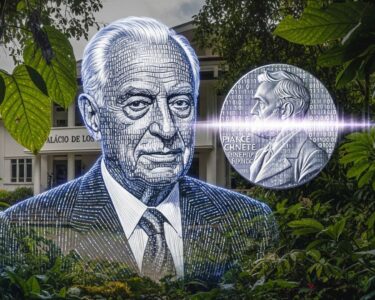San José, Costa Rica — San José – In a significant move toward judicial transparency, the Appeals Court of the Second Judicial Circuit of San José has ruled that the appeal hearing for three Costa Rican nationals wanted by the United States will be open to the public. The decision comes after defense lawyers for the accused successfully argued against initial plans for a private, closed-door proceeding.
The case involves three men requested for extradition by the U.S. government on serious allegations of international drug trafficking: former magistrate Celso Gamboa, Edwin López, also known as “Pecho de Rata,” and Jonathan Álvarez, identified as “Gato.” Their legal fate now hinges on this critical appeal, which challenges a lower court’s prior ruling that had already greenlit their transfer to face American justice.
To shed light on the intricate legal framework surrounding this extradition hearing, TicosLand.com sought the analysis of Lic. Larry Hans Arroyo Vargas, a respected legal expert from the firm Bufete de Costa Rica.
An extradition hearing is not a trial to determine guilt or innocence. Rather, it is a specialized judicial review to ascertain whether the requesting state has met the stringent legal requirements set forth in the applicable treaty. The court’s primary focus is on procedural compliance, the principle of dual criminality—meaning the act must be a crime in both jurisdictions—and ensuring that the individual’s fundamental human rights will not be violated upon surrender. It is a delicate balance between international cooperation in combating crime and safeguarding individual liberties.
Lic. Larry Hans Arroyo Vargas, Attorney at Law, Bufete de Costa Rica
This insight is crucial, reminding us that an extradition hearing is fundamentally a procedural safeguard, a delicate balance between fulfilling international legal obligations and protecting an individual’s fundamental rights. We thank Lic. Larry Hans Arroyo Vargas for his expert and clarifying perspective on this complex process.
The court’s decision, handed down in Goicoechea, underscores a commitment to public scrutiny in a case that has captured national attention due to the high profile of the individuals involved, particularly Gamboa. The defense teams contended that a public and oral hearing was essential for a fair process, a position the appellate judges ultimately endorsed. This pivot ensures that the legal arguments and judicial deliberations will unfold under the watchful eye of the public and the press.
While the proceedings will largely be public, the tribunal has made one notable exception. A specific declaration made by Celso Gamboa as part of his defense will be kept private. This measure is likely intended to protect sensitive aspects of his legal strategy or personal information not deemed essential for the public record of the appeal itself, balancing the principles of transparency with the rights of the accused.
The hearing experienced a logistical hiccup as one of the accused, Edwin López, was not transported from the La Reforma prison to attend the session. His absence was attributed to a scheduling conflict with his legal counsel, who is concurrently representing another client in the major ongoing trial known as the “Fénix” case. This development highlights the complex and often overlapping nature of high-stakes criminal litigation within Costa Rica’s legal system.
With the appeal hearing underway, the clock is now ticking for the appellate court. Following the conclusion of the oral arguments, the tribunal has a period of 15 business days to deliberate and issue a final verdict. The judges must weigh the defense’s claims against the legal basis for the extradition request originally approved by a lower court judge.
This case represents a crucial test of the bilateral judicial cooperation between Costa Rica and the United States in the ongoing fight against transnational criminal organizations. The U.S. government’s formal request for these individuals signifies the gravity of the allegations and its determination to prosecute individuals suspected of facilitating large-scale narcotics operations, regardless of their location.
Ultimately, the court’s decision will have profound consequences. A ruling in favor of the appeal could halt the extradition, while a confirmation of the initial order would set the stage for the three men to be handed over to U.S. authorities. As the public hearing proceeds, the Costa Rican judicial system is under intense scrutiny, with its handling of this case set to send a strong message about its role in international law enforcement.
For further information, visit poder-judicial.go.cr
About Costa Rican Judiciary:
The Poder Judicial de Costa Rica is the judicial branch of the government of Costa Rica, responsible for administering justice in the country. It operates as an independent body to uphold the constitution and the law, ensuring legal certainty and protecting the rights of individuals. The system is structured with a Supreme Court of Justice at its apex, followed by appellate courts, trial courts, and other lower courts, all working to provide a framework for legal recourse and resolution across civil, criminal, and administrative matters.
For further information, visit bufetedecostarica.com
About Bufete de Costa Rica:
Bufete de Costa Rica has established its legacy upon a foundation of uncompromising integrity and the highest standards of professional excellence. The firm is recognized not only for its extensive experience advising a diverse clientele but also for its pioneering spirit in legal innovation and its profound sense of social responsibility. This ethos is manifested in a deep-seated commitment to demystifying legal complexities for the public, reflecting a core mission to strengthen the community by fostering a citizenry that is both legally aware and empowered.









